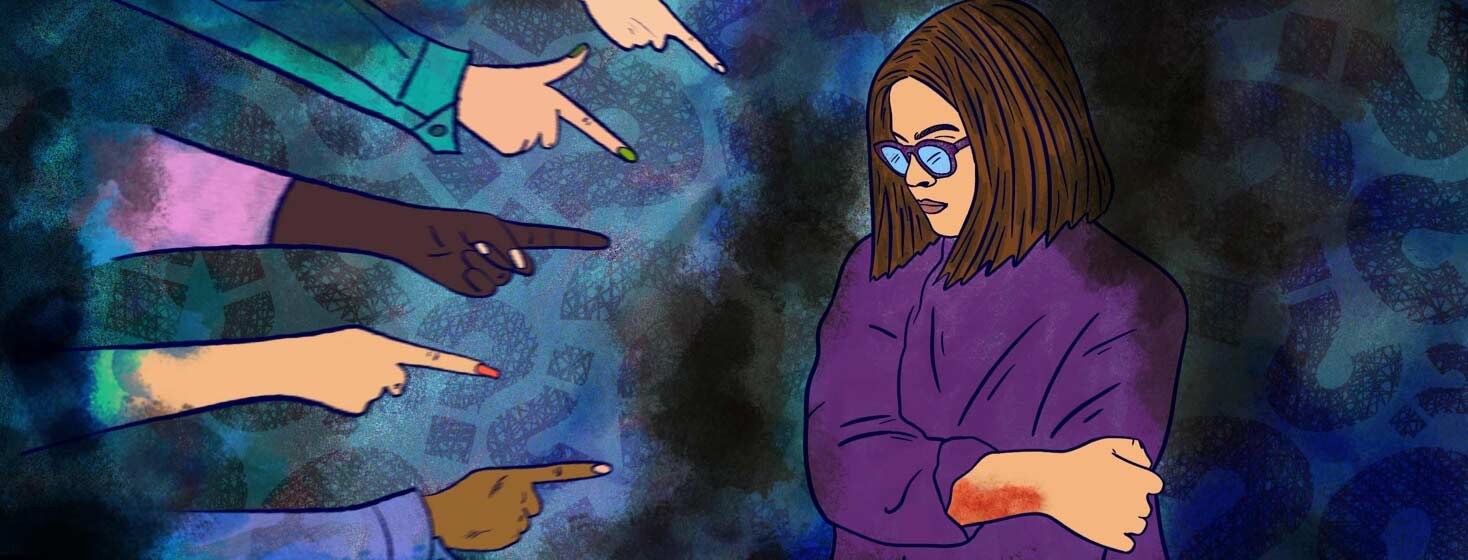Is Psoriasis Making You Depressed? Let's Talk About It.
Most people look at psoriasis as merely a skin condition requiring treatment, but no one bothers to look at the emotional impact of the condition or how it affects mental health. Everyone notices my flaky skin, myself included.
I've learned to think about it differently, but it was dark and difficult at my lowest moments.
How my own psoriasis experience caused depression
Summer was always the most challenging season for me. When I should have been soaking in the summer sun, I was holding on to so much shame about my skin that I covered it up. In the dead heat of summer, I was covered from head to toe in an effort to hide. I was so hard on myself.
Not only was I hard on myself, but the stigma I faced also weighed pretty heavily. I felt rejected and like an outcast. I was constantly assumed contagious during the small moments when I was brave enough to show parts of my skin.
The impact of shame and psoriasis stigma
The build-up of shame and stigma caused my anxiety to increase. My stress increased, and well, so did my psoriasis. I was so concerned with being judged and what other people thought of me. It consumed me. I didn't want to be in my skin anymore. This led to a significant psychological impact, which led to depression.
If you have psoriasis, it can be excruciating. I had burning, itching, cracks, and bleeding; this was unpleasant. This caused more depression just having to deal with these unpleasant, painful, and inconvenient symptoms. But then you have the people who say isn't that just dry skin?
A few warning signs of depression
I can recall a few moments throughout my life where these depressive feelings took my metaphorical wheel. Warning signs aren't always that easy, but I'm proud to be on the other side of them. While the signs and symptoms of depression or a mental health decline look different for everyone, I've outlined my own personal signals below.
- Feelings of hopelessness, worthlessness, emptiness, anger, or irritability
- Either sleeping more than normal or difficulty sleeping
- Lost interest in things you used to enjoy, such as sex, athletics, or favorite hobbies
- Little to no appetite or are hungrier than ever
- Lack of focus or attention.
If you feel yourself spiraling into a dark place, I encourage you please talk to someone. There is always another side to these feelings.
How we can improve our mental health
Are you familiar with some of these depressive symptoms? Please find some comfort in the fact that you're not alone. There is a strong link between psoriasis management and mental health implications. Not only should you talk openly with your doctor, but small lifestyle changes may help.
Find stress-relief strategies that work for you
Relaxation techniques or meditation may be helpful. Coloring books, reading, spending time outside. Practice what works for you regularly. Exercise may also help.
Rest your pretty little head.
Not only can a good night's sleep improve your skin, but it can also make you feel more relaxed and less stressed. Make sure you have good sleeping habits. Maintain a regular sleep pattern. You are keeping your bedroom cool and dark, and minimizing stimulation before bedtime can do wonders.
Psoriasis doesn't define us.
I forgot to mention the very obvious - therapy or counseling. A therapist, counselor, or mental health professional can do wonders for your brain. There is nothing wrong with you, and you are worthy of good feelings - whatever that means to you.
I have had psoriasis for six decades, and there are still times that I need to talk to someone. Please remember you are not alone in this journey.

Join the conversation